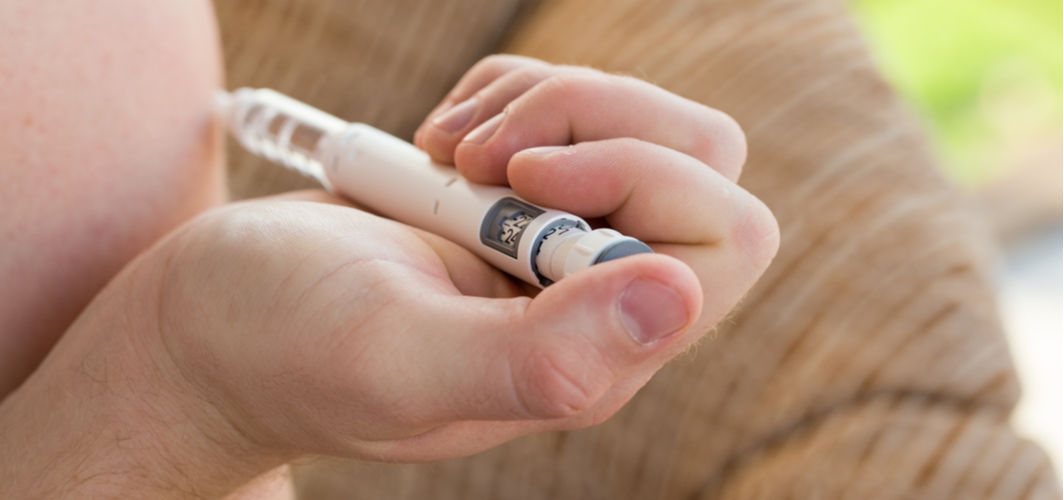Diabetes Management
Innovations That Are Making Living With Diabetes Easier
4 min read

With scientific and technological advancements making giant strides, the landscape of diabetes care has evolved significantly over the years. These innovations not only improve the lives of individuals with diabetes but also aid in more efficient management of the condition.
Here are five notable innovations that are causing a remarkable paradigm shift:
1. Continuous Glucose Monitoring (CGM) Systems
Continuous Glucose Monitoring has transformed diabetes management by providing real-time data on blood sugar levels. CGM systems use a small sensor inserted under the skin to measure glucose levels continuously. This information helps individuals and healthcare providers make informed decisions about medication titration, meal planning, and physical activity. This results in blood sugar control and fewer hypoglycemic or hyperglycemic episodes.
2. Insulin Pens and Pumps
Traditional insulin injections are giving way to more advanced insulin administration methods. Insulin pens and pumps allow for precise dosing, reduce the need for multiple daily injections, and improve insulin management. Smart insulin pens connect to mobile devices and use recorded blood sugar levels and meal size, alongside doctor recommendations, to calculate the timing and amount of each insulin dose. They are particularly beneficial for individuals with Type 1 diabetes and those with Type 2 diabetes who require insulin therapy.
3. Drugs
Advances have also been in oral drug therapy for diabetes. Two classes of drugs glucagon-like peptide-1 receptor agonists (GLP-1RA) and sodium-glucose cotransporter-2 inhibitors (SGLT-2i), have shown a lower risk of side effects like weight gain, hypoglycemia (low blood sugar levels) compared to older diabetes medications. Most GLP-1RA drugs are in injectable forms but in the 2020s an oral GLP-1RA was approved. SGLT-2i may also help reduce the risk of cardiovascular events like heart failure and even kidney problems.
3. Artificial Pancreas Systems
Artificial pancreas systems, also known as closed-loop systems, combine CGM with insulin pumps and link compatible devices with a computer algorithm that automatically calculates the amount of insulin needed. These devices automatically adjust insulin delivery based on real-time glucose data. By mimicking the function of a healthy pancreas, artificial pancreas systems reduce the burden of constant glucose monitoring and insulin dosing, leading to improved glycemic control. While insulin is just one aspect of the potential use of closed loop systems researchers are developing “multi-hormone” closed loop systems that can deliver glucagon ( a hormone released by the body to regulate blood sugars when they get too low) and insulin thus making another important step in the evolution of technology used for managing diabetes.
4. Telehealth and Diabetes Apps
Telehealth services and mobile apps are revolutionising diabetes care. Patients can remotely connect with healthcare providers, receive personalised advice, and share data from their glucose meters and CGMs. In fact, diabetes apps can now help track your blood sugar levels, show trends, provide bolus insulin dose calculators, monitor your diet, help with carbohydrate counting, provide food caloric content, suggest diabetic-friendly recipes, suggest meal alternatives, log your exercise, and provide community support from other people living with diabetes.
Post-COVID telemedicine has helped improve access to diabetes care and in fact, there is a large body of evidence for the efficacy of telemedicine in diabetes care showing similar outcomes when compared to traditional clinic visits. Tele-education, nutrition, and psychology are amongst the newest telemedicine models that may help bridge the gap in the required multi-disciplinary support and collaboration in diabetes care. E-consults are another innovation that has greatly increased the ease and convenience of diabetes care for both patients and doctors.
5. Advanced Insulin Formulations
Innovations in insulin formulations are improving the lives of people with diabetes. Ultra-rapid-acting insulins, like Fiasp and Lyumjev, provide faster glucose-lowering effects, allowing for more flexibility in meal timing and better post-meal blood sugar control. Long-acting insulins, such as Tresiba and Toujeo, offer prolonged action and reduced risk of hypoglycemia.
6. Artificial Intelligence (AI)
AI-based algorithms are being developed to detect the risk and progression of diabetic retinopathy (diabetes-related eye complication that causes visual disturbances). The study identifying the risk of diabetic retinopathy progression using machine learning on ultrawide field retinal images, examined the use of AI algorithms to improve the process of estimating the risk of DR progression. In this study, the authors developed and validated machine learning (ML) models for DR progression from ultrawide field (UWF) retinal images, which were labelled for baseline DR severity and progression. Research indicated that the AI prediction for 91% of the images was labelled correctly.
Conclusion
These innovations are not only transforming diabetes management but also enhancing the overall quality of life for individuals with diabetes. By offering improved accuracy, convenience, and real-time data, they empower individuals to take control of their condition and reduce the impact of diabetes on their daily lives.
Diabetes Management
Consult Top Diabetologists
View AllLeave Comment
Recommended for you

Diabetes Management
Insulin Therapy for Diabetes: Separating Myths from Facts
Insulin treatment may not lead to weight gain. In type 2 diabetics, undergoing insulin treatment, weight gain is frequently caused by the improved blood glucose control and higher effectiveness in utilising glucose. Insulin itself does not directly cause it. The initial weight increase frequently stabilises with time, proper diet and exercising.

Diabetes Management
How To Know If You Have Insulin Resistance?
Reduced reactivity to insulin is one of the symptoms of insulin resistance, which affects how glucose is metabolised. Recognising its symptoms, understanding its causes, and undergoing appropriate testing are essential for early detection and effective management. With lifestyle modifications, medications, and regular monitoring, individuals can successfully manage insulin resistance and improve their overall health.

Diabetes Management
Can Diabetes Be Diagnosed Without Symptoms?
This article emphasises the importance of early screening for asymptomatic diabetes to prevent complications and guides readers on diagnostic methods, risk factors, and proactive management strategies.
Subscribe
Sign up for our free Health Library Daily Newsletter
Get doctor-approved health tips, news, and more.
Visual Stories

8 Fruits That are Incredibly Healthy for Diabetes
Tap to continue exploring
Recommended for you

Diabetes Management
Insulin Therapy for Diabetes: Separating Myths from Facts
Insulin treatment may not lead to weight gain. In type 2 diabetics, undergoing insulin treatment, weight gain is frequently caused by the improved blood glucose control and higher effectiveness in utilising glucose. Insulin itself does not directly cause it. The initial weight increase frequently stabilises with time, proper diet and exercising.

Diabetes Management
How To Know If You Have Insulin Resistance?
Reduced reactivity to insulin is one of the symptoms of insulin resistance, which affects how glucose is metabolised. Recognising its symptoms, understanding its causes, and undergoing appropriate testing are essential for early detection and effective management. With lifestyle modifications, medications, and regular monitoring, individuals can successfully manage insulin resistance and improve their overall health.

Diabetes Management
Can Diabetes Be Diagnosed Without Symptoms?
This article emphasises the importance of early screening for asymptomatic diabetes to prevent complications and guides readers on diagnostic methods, risk factors, and proactive management strategies.
